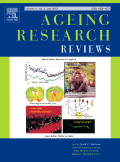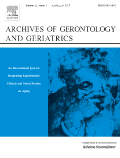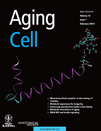
GERONTOLOGY
metrics 2024
Advancing the Science of Aging
Introduction
GERONTOLOGY, published by KARGER in Switzerland, is a prominent journal dedicated to the study and understanding of aging, with a keen focus on the interdisciplinary aspects of geriatric medicine and gerontology. Established in 1957, it has provided a platform for cutting-edge research that covers a wide range of topics including, but not limited to, the biological, psychological, and sociological aspects of aging. With an impressive ranking that places it in the Q3 category for Aging and Q2 for Geriatrics and Gerontology as of 2023, the journal continues to attract high-quality submissions from researchers worldwide, evidenced by its Scopus rankings, which position it favorably within relevant fields. While it operates under a subscription model, the journal remains committed to advancing knowledge that informs practice and policy within an aging society. By fostering innovative studies and discussions, GERONTOLOGY serves as an essential resource for researchers, health professionals, and students alike, dedicated to the care and understanding of older adults.
Metrics 2024
 0.98
0.98 3.10
3.10 4.20
4.20 113
113Metrics History
Rank 2024
Scopus
IF (Web Of Science)
JCI (Web Of Science)
Quartile History
Similar Journals

npj Aging and Mechanisms of Disease
Exploring the Mechanisms of Aging and Longevitynpj Aging and Mechanisms of Disease is a leading open-access journal dedicated to advancing the understanding of the biological mechanisms underlying aging and age-related diseases. Published by NATURE PORTFOLIO in the United Kingdom, this journal has established itself as a vital resource within the fields of Aging and Geriatrics and Gerontology, proudly holding a prestigious Q1 ranking in both categories as of 2023. With an impressive Scopus ranking, placing it in the top 10 for Geriatrics and Gerontology, and the top 9 for Aging, the journal is committed to disseminating high-quality, peer-reviewed research that offers innovative insights and fosters collaboration among researchers and practitioners. Since its inception in 2015, npj Aging and Mechanisms of Disease has embraced the open-access model, ensuring that groundbreaking findings are freely available to all, thereby promoting widespread knowledge-sharing within the scientific community. This journal serves as an essential platform for those seeking to explore the complex interplay of genetic, molecular, and environmental factors that influence aging and its associated challenges.

AGEING RESEARCH REVIEWS
Bridging Disciplines to Enhance Aging InsightsAGEING RESEARCH REVIEWS, published by Elsevier Ireland Ltd, is a prestigious academic journal dedicated to advancing our understanding of the biological, psychological, and societal aspects of aging. With an ISSN of 1568-1637 and E-ISSN of 1872-9649, this journal has established itself as a leading resource in the fields of Aging, Biochemistry, Biotechnology, Molecular Biology, and Neurology, consistently ranked in the Q1 category across these disciplines as of 2023. For researchers, students, and professionals eager to explore cutting-edge findings and innovative methodologies, AGEING RESEARCH REVIEWS gathers comprehensive reviews that facilitate a deeper understanding of age-related processes. Its high impact factor and exceptional Scopus rankings—ranking #1 in Aging and #3 in Neurology—underscore its critical role in shaping contemporary aging research. This journal not only serves as a vital reference point but also fosters a collaborative space for the scientific community focused on improving health outcomes across the life span. Published continuously since 2002 and with a converging focus through 2024, AGEING RESEARCH REVIEWS remains committed to disseminating impactful knowledge that drives progress in our understanding of the aging process.

Aging Brain
Transforming Understanding of the Aging BrainAging Brain is a premier Open Access journal published by Elsevier, dedicated to advancing the understanding of the neurobiological changes associated with aging. Since its commencement in 2021, this journal has been pivotal in disseminating high-quality research that explores the intricate relationships between aging and cognitive functions, neurological disorders, and overall brain health. With a notable commitment to open accessibility, Aging Brain ensures that vital findings are available to a global audience, fostering collaboration and innovation in the field. Researchers, healthcare professionals, and students alike will find a rich repository of cutting-edge studies, reviews, and insights aimed at addressing the complexities of the aging brain. The journal stands as an influential platform for those passionate about enhancing the quality of life for the aging population, making it a valuable resource in gerontology and neuroscience.

ARCHIVES OF GERONTOLOGY AND GERIATRICS
Illuminating the path to better elderly care.The Archives of Gerontology and Geriatrics, published by Elsevier Ireland Ltd, is a leading journal in the fields of Aging and Geriatrics and Gerontology. With an ISSN of 0167-4943 and an E-ISSN of 1872-6976, it has established itself as a crucial platform for disseminating high-quality research focused on the biological and psychosocial aspects of aging. The journal holds an impressive Q2 ranking in both Aging and Geriatrics and Gerontology, and a Q1 ranking in Gerontology and Health (Social Science) as of 2023, reflecting its significant impact in these disciplines. Additionally, the journal is ranked #33/371 in Social Sciences (Health) and #5/39 in Nursing (Gerontology) according to Scopus, showcasing its esteemed position in the academic community. Although currently not open access, the journal offers a wealth of research articles from 1982 to the upcoming 2025 that are vital for stakeholders including researchers, healthcare professionals, and students aiming to advance their understanding of aging processes and policies. Titles published within its pages contribute to shaping agendas in public health and gerontological practice, making it an essential resource for those involved in the study of the elderly population.

Frontiers in Aging
Advancing the Science of AgingFrontiers in Aging is a leading academic journal published by FRONTIERS MEDIA SA, dedicated to advancing the understanding of the biological processes associated with aging. Established in 2020, this open-access journal aims to bridge the gap between various disciplines including genetics, molecular biology, and physiology, providing a multidisciplinary platform for researchers and clinicians alike. With a notable impact factor denoted by its Q2 quartile rankings in Aging, Genetics, and Molecular Biology, and a Q1 ranking in Physiology as of 2023, the journal is recognized for its contribution to the scientific community. Located in Lausanne, Switzerland, it is committed to promoting open discourse and publishing cutting-edge studies that address the complexities of aging and its implications for health and longevity. The journal’s editorial board, consisting of leading experts, ensures the rigorous peer-review process, maintaining high academic standards and fostering innovation in aging research.

Nature Aging, published by SPRINGERNATURE in Germany, stands as a premier journal dedicated to advancing the field of aging research. With high-ranking performance indicators, including a Q1 classification in Aging, Geriatrics and Gerontology, and Neuroscience (miscellaneous), this journal emphasizes the interdisciplinary nature of aging studies. Its Scopus rankings highlight its impact, achieving remarkable positions such as #1 in Neuroscience and #2 in both Geriatrics and Biochemistry for aging-related research. Although currently not open access, Nature Aging provides a wealth of cutting-edge research and critical reviews that aid researchers and practitioners in understanding the complexities of aging mechanisms and their implications. As the field continues to evolve from 2021 through 2024, this journal not only facilitates the dissemination of knowledge but also fosters innovative discussions that propel the science of aging forward. Join the vibrant community of scholars and professionals dedicated to solving the challenges associated with aging by engaging with the content published in Nature Aging.

Innovation in Aging
Shaping the dialogue on health and aging innovations.Innovation in Aging, published by Oxford University Press, is a prestigious open-access journal dedicated to advancing the understanding of aging and its implications on health and society. Established in 2017, the journal has rapidly gained a strong reputation within the academic community, achieving Q1 rankings in multiple categories including Health Professions, Health (Social Science), and Life-span and Life-course Studies, with impressive Scopus rankings that place it among the top journals in its field. With an emphasis on innovative research and interdisciplinary approaches, Innovation in Aging aims to foster dialogue among researchers, professionals, and policymakers, addressing key challenges and breakthroughs in gerontology, geriatrics, and related disciplines. As an open-access journal, it provides accessible content to a wide audience, supporting knowledge dissemination and collaboration to improve the quality of life for aging populations. This journal is essential for those looking to stay at the forefront of aging research and its impact on health and society.

AGING CELL
Exploring the Frontiers of Aging ResearchAGING CELL is a premier peer-reviewed journal published by Wiley, specializing in the rapidly evolving field of aging research and cell biology. Established in 2002 and enjoying an impressive track record as evidenced by its Q1 ranking in both Aging and Cell Biology categories for 2023, the journal has become a vital resource for researchers and professionals alike. With a significant impact factor highlighting its scholarly influence, AGING CELL offers an open access model since 2014, ensuring that groundbreaking research is accessible to the global community. The journal covers a wide array of topics related to the mechanisms of aging at the cellular and molecular levels, making it essential reading for anyone invested in understanding the complexities of aging processes and their implications for health and disease. With a broad international readership based in the United Kingdom and beyond, AGING CELL is dedicated to disseminating high-quality research that impacts scientific understanding and fosters advances in the field.

npj Aging
Advancing knowledge on the complexities of aging.npj Aging, published by Nature Publishing Group, is a pioneering journal dedicated to advancing our understanding of the biological, clinical, and social aspects of aging. With an E-ISSN of 2731-6068, this open-access journal aims to foster innovative research and interdisciplinary dialogue among scientists, clinicians, and policy-makers. As of its inception in 2023, the journal has quickly established itself within the scholarly community, ranking 15th in Medicine (Geriatrics and Gerontology) and 12th in Biochemistry, Genetics, and Molecular Biology focusing on Aging, reflecting a strong percentile standing in both categories. The journal provides a platform for disseminating important findings that address the complexities of aging, ensuring accessibility for a broader audience. Located at the Macmillan Building, 4 Crinan St, London, England, npj Aging aspires to be an essential resource for those seeking to enhance their understanding and contribute to the field of gerontology.

Aging-US
Championing Excellence in Aging ResearchAging-US is a premier peer-reviewed journal dedicated to advancing the field of aging research and cell biology. Published by IMPACT JOURNALS LLC, this journal serves as a vital resource for researchers and professionals exploring the biological mechanisms of aging and their implications for health and disease. With a commendable impact factor reflected in its 2023 Scopus rankings, where it stands at Rank #10/38 in the category of Aging and Rank #63/285 in Cell Biology, Aging-US exemplifies rigorous scientific excellence. Its open access policy enhances accessibility, fostering a wider dissemination of knowledge in both academic and clinical settings. Spanning from 2009 to 2024, the journal provides a platform for groundbreaking studies and innovative methodologies, ensuring that it remains at the forefront of the dynamic conversations surrounding aging and cellular biology. Engage with Aging-US to contribute to the evolving narratives of longevity and cellular health.